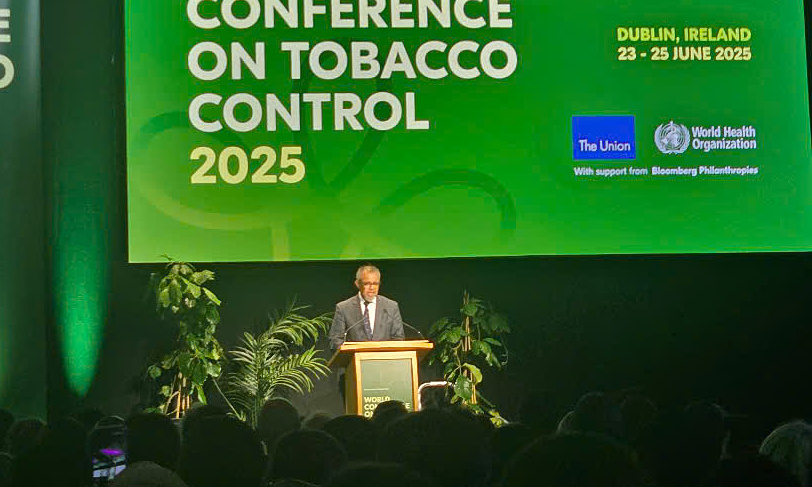Phan Thi Hai, Deputy Director of the Vietnam Tobacco Control Fund (Ministry of Health), shared this information at the World Conference on Tobacco Control in Dublin, Ireland, from 23/6 to 25/6. The conference took place as many countries face public health budget cuts and expanding tobacco industry marketing strategies.
Hai stated that the National Assembly passed the amended Special Consumption Tax Law this June. The law applies a mixed excise tax system to tobacco products.
Previously, in November 2024, the National Assembly also issued a resolution completely banning the production, trading, import, possession, transport, and use of e-cigarettes and heated tobacco products starting in 2025.
"These decisions demonstrate the Vietnamese government's strong commitment to protecting public health through tobacco control efforts," Hai said.
Vietnam is among the 15 countries with the highest smoking rates globally, with over 15 million adult men (over 41%) using tobacco. This rate is only lower than Indonesia and Laos in ASEAN. Alarmingly, the rate of e-cigarette use among women and young people is increasing. Tobacco use causes estimated annual damage of over 108 trillion VND—five times the state budget revenue from tobacco taxes.
Experts explain that tobacco is easily accessible to young people largely due to its low price and the current tax policy's insufficient deterrent effect. As evidence, total cigarette production in Vietnam increased by more than 10% in 2022-2023.
"This shows that when the tax rate is low, the state budget does not collect much, while society bears the heavy financial consequences," according to Dr. Nguyen Huy Quang, Vietnam Medical Association.
Quang gave an example: a typical pack of cigarettes in Vietnam costs only about 7,000-10,000 VND, equivalent to one-fourth the price of a bowl of pho. This makes cigarettes very cheap compared to income and inflation, especially in the context of a stable macroeconomy.
 |
The Director-General of the World Health Organization speaks at the World Conference on Tobacco Control. Photo: Organizing Committee |
The Director-General of the World Health Organization speaks at the World Conference on Tobacco Control. Photo: Organizing Committee
Experts at the conference agreed that investing in tobacco control is one of the most effective health and economic strategies. Accordingly, increasing tobacco taxes will bring dual benefits: increasing budget revenue and reducing the number of smokers by 2.5 million.
Sarah Bales, an expert at the Health Economic Association of Vietnam, said many countries have successfully increased tobacco taxes while maintaining economic stability. She added the "importance of setting cigarette prices high enough to force consumers to consider carefully."
Le Nga












